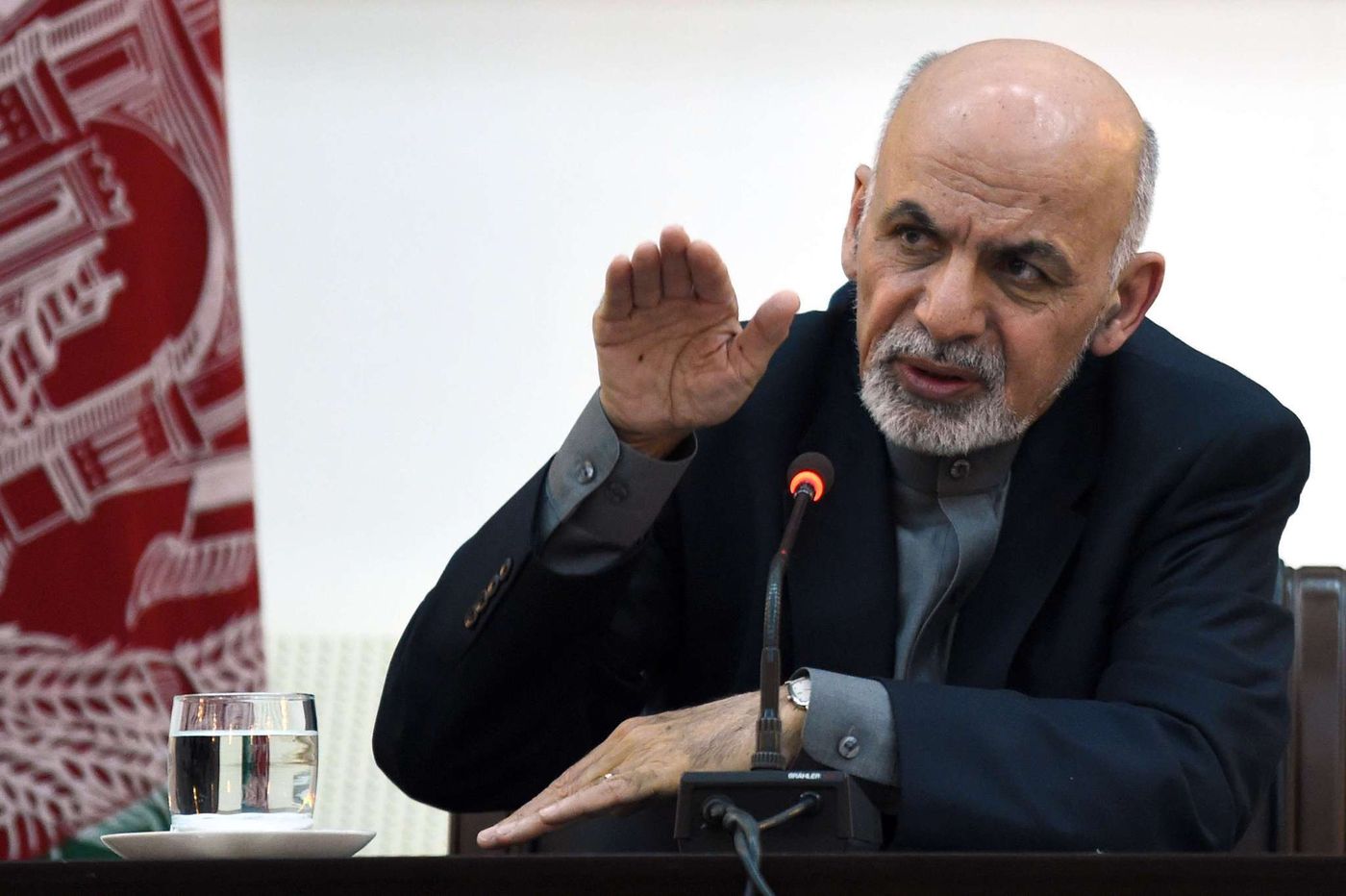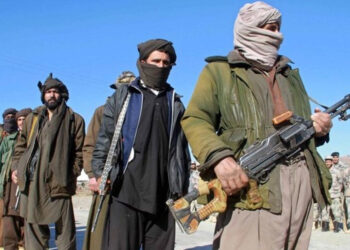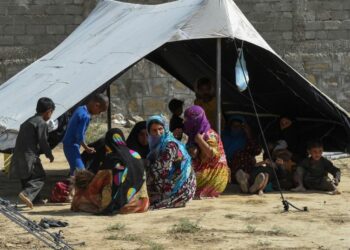Ashraf Ghani and Zalmay Khalilzad have been the most influential Afghan-Americans to impact U.S.-Afghanistan relations over the decades. Their education and Washington-based experience have earned them rhetoric sway and a vastly influential network of friends. However, their ethnonationalism-aspired Afghanistan “vision” has cost the U.S. thousands of lives and “trillions of dollars.” The perplexing “Afghan war” has also resulted in a severe damage to the U.S. image as the world’s mightiest military.
The U.S. abandoned Afghanistan when the Soviet-backed communist regime was overthrown in 1992. At the time, the Empire of Liberty could have easily helped Afghanistan transition toward constitutionalism and democracy with Professor Burhanuddin Rabbani in power. But he had to be abandoned, perhaps on Khalilzad’s advice, because he was a non-Pashtun.
A decade later, this desertion came to hunt the U.S. with terrorist attacks of September 11, 2001. Such barbaric attacks caught everyone by surprise, including Khalilzad who was lobbying for the Taliban recognition in the U.S. At the time, he was on Unocal’s payroll in spite of the group’s link to al-Qaeda.
According to Flaherty et al., “Zalmay Khalilzad, an Afghan-born [Pashtun] former Reagan State Department adviser on Afghanistan, entered the picture as a consultant for a Boston group hired by Unocal. […] Officially, Unocal refused to take sides in the Afghan conflict. But its favors to the Taliban sent a clear signal to rivals.”
Nevertheless, the U.S. had to go back to the Rabbani government to be able to defeat the Taliban in 2001. This came as a major blow to Khalilzad and Ghani who spent years on ethnocentric narrative building in Washington. In fact, they were discredited in the eyes of their American patrons and could have stopped narrating an “Afghan fallacy,” should they have deserted ethnonationalism.
It was at that time when Ghani stepped in with the help of “expert” friends like former Algerian Ambassador Lakhdar Brahimi and political scientist Barnett Rubin. Together, they engineered a tribal-based caustic roadmap for Afghanistan to dethrone the anti-Taliban forces, and to tie-up the U.S. in a perplexing “rebuilding” mission that the American people have been paying for with “blood and treasure” hoping for the “defeat” of terrorism. Yet, after nearly two decades, Washington is swindled into “negotiating with the terrorists:” hand over Afghanistan and leave.
Ghani’s Five-Step Plan: the “Bonn Agreement”
While the government forces of late President Rabbani with the U.S.-led air force assistance were battling the Taliban and al-Qaeda in the mountains of Afghanistan, Ghani and his friends in a luxurious suburb of Washington, DC were spending days and nights drawing scenarios on how to defeat Rabbani on the political front.
In those good old days, the Taliban’s defeat was imminent, with President George W. Bush personally threatening Pakistan’s Parvez Musharraf to blow “his country ‘back to the Stone Age’ if he didn’t switch his support from Afghanistan’s pro-Al Qaeda Taliban.” In fact, such direct approach had paid off, since the Taliban was practically defeated in a matter of days after 9/11 attacks.
They reemerged only when the U.S.-led international forces were misadvised to make a paradoxical shift of priority on the anti-Taliban forces’ disarmament rather than continue eliminating terror elements together. At the same time, a tribal smear campaign against “warlordism” sidelined the anti-Taliban power blocs. Hence, the Taliban began to recuperate from a total demise to gain military and political momentum under their tribesmen’s – Hamid Karzai and Ghani’s – tenures.
However, by the time the Taliban was defeated in 2001, Ghani’s engineered “Bonn Conference” was sold with the U.S. government through Khalilzad. Thus, Ghani and friends had the privilege of positioning themselves as representatives of different “mediating parties” at Bonn to daunt the Rabbani government and deceive its delegates into signing Ghani’s tribal roadmap.
That is known as the “Agreement on Provisional Arrangements in Afghanistan Pending the Re-Establishment of Permanent Government Institutions.” When the “agreement” was signed, Brahimi was the U.N. designated chair, Khalilzad served as the U.S. envoy, Rubin was the “expert,” and Ghani – the “top U.N. advisor.”
What was there to “re-establish” really? Was it to reverse what Ahady called the Pashtun “institutionalized dominance” that ended in Afghanistan in 1992? Seemingly so, Ghani wanted to repeat his grandfather’s tribal “heroics” of 1929.
According to George Packer, “Ghani has come from a prominent Pashtun family. His paternal grandfather, a military commander, helped install King Nader, who assumed office shortly after Amanullah [Khan]’s overthrow, in 1929.”
Packer avoids mentioning King Habibullah Kalakani, a Tajik ruler who deposed Pashtun Amanullah. He went to a “negotiation” meeting with the tribal leader, Nader and, perhaps, Ghani’s grandfather in October 1929. It was a plot that led to his dethronement and execution.
Packer elaborated, “On September 11, 2001, Ghani was at his desk in Washington, and he knew immediately that everything was about to change for Afghanistan. He drafted a five-step plan for a political transition [and] rebuilding the country.”
“During the American-led war against the Taliban, a small group of experts—including Lockhart, the Afghanistan scholar Barnett Rubin, and the Algerian diplomat Lakhdar Brahimi, then the U.N. special envoy for Afghanistan—met at Ghani’s house outside Washington. That December, the group’s work influenced the Bonn Agreement […] while leaving unresolved the conflict between Ghani’s vision of a modern state and the interests of regional power brokers.”
“Ghani’s Vision of a Modern State”
Since his “capture” of the presidency in 2014, Ghani’s vision has revealed to be that of a Pashtun “nation-state,” an old mirage pursued by a British India client-king, Abd al-Rahman Khan, known as “The Iron Amir” (1880-1901). That king did not only leave a patron-client legacy but also a delusion for his tribal heirs who have been failing to deliver for centuries.
In an “academic paper” Ghani could not hide his admiration for Khan’s policy of power consolidation to “reshape” ethnic and religious aristocracies to create a “strong State.” Crimes and religious oppression that Khan perpetrated to falsify an “ethnic majority to wear the mantle of a nation” with British India patronage are now known as ethnic cleansing. Hence, Ghani consolidated power to empower his chosen tribesmen while “dominating” and containing the powers of others in Afghanistan.
A “nation-state” is “a vehicle for ethnic aspirations.” According to D. L. Sheth, “a people should find its ethnicity which is equivalent to a nation. If such equivalence is not possible because within a territorial entity there are [multiple ethnicities], one should create an ethnic majority, which can wear the mantle of a nation.”
At the same time, “nation-state” is a European concept of the 1500s that has never worked elsewhere. Even in Europe, Germany, Italy and Spain have suffered from this dominium-aspired paradox with fascism and Nazism during Hitler, Mussolini and Franco eras.
Nowadays, conventional “nation-states” are moving toward “state-nation” to accommodate multiculturalism and promote non-domination. Why are we still forcing Afghanistan towards a false “nation-state?” Is this “a modern vision?”
Under guises of democracy, Ghani has “Iron Amir” aspirations in the 21st century with an American patronage. After power consolidation, he wants to establish stronger intelligence and military ties with the totalitarian states like Saudi Arabia, UAE, and Qatar. Using their theocratic model and influence, he seeks to lure the Taliban under his command as merciless tribal warriors to “reshape” ethnic and religious aristocracies, a step similar to what Khan did in the 1800s.
Ghani’s abnormal stance as a tough guy; arbitrary use of violence against anti-Taliban Uzbek forces in Faryab Province that resulted in killings, tortures, and disappearance; instrumental usage of the “religious scholars” to promote his policies; and his government’s “failure” to protect Hazara-populated Ghazni Province that the Taliban ruined, are Khan’s ancient tribal-tyrannical antics in modern times.
In the face of all these events, Ghani has yet to be firmly confronted by opposition. This makes him believe that he has attained a monopoly on violence in Afghanistan, and thus he is running a tactical campaign through friends – Rubin and Fareed Zakaria – in the U.S. media to shape Americans’ opinion for the U.S. to withdraw from Afghanistan thorough, perhaps, a “peace deal” with the Taliban that would leave Ghani “the Iron Amir” of Afghanistan and the Taliban as his ruthless tribal warriors, just like in the 1800s.
All while Afghan Armed Forces are massacred; cities are burned and looted; civilians are killed and displaced, and modern weaponry tools are ceased by Ghani’s “tribal warriors”-to-be. Hence, he is confidently getting ready to announce another “Eid ceasefire,” even though the Taliban are committing atrocities in Fariyab and Ghazni provinces.
High Times for the U.S. National Security
Similar to Khalilzad’s U.S.-Taliban lobbying prior to the 9/11 attacks, Ghani has been building a false peace narrative with the Taliban. He has succeeded to delude Americans to engage in direct talks with the group whose terrorist behavior has no human dimensions to allow a common ground for compromise.
I am not opposing peace, but the danger of its politicization and false foundations in Afghanistan’s violent ethnopolitics.
Seemingly, Americans are making another mistake by promoting “Afghan” ethnonationalists’ agenda that could jeopardize the U.S. national security as it did in September 2001. The Taliban preach terrorism, given their
Hence, the Taliban must be defeated, just like in the post-9/11 days, with the support of the anti-Taliban forces comprised of all ethnic groups, some of whose leaders might have become kleptocrats, but the social bases will not. Then, they could be brought to the negotiating table from a position of strength.
The ruling tribal elites are masters of demagoguery with a web of influential support to promote their hidden tribal agenda, even if it means jeopardizing the U.S. national security. Thus, they should be abandoned, not Afghanistan. Otherwise, with a potential ethnonationalist Amir and the Taliban as his warriors, Afghanistan may become the global terrorism sanctuary once again, and the history will repeat itself. Only this time, the Taliban, who were defeated with the U.S. support, to avenge.
Disclaimer: The views and opinions expressed here are those of the author and do not necessarily reflect the editorial position of The Globe Post.





















